One way
Logo Democracy is not a distant dream or an academic exercise: it is an invitation to walk together toward a more intelligent, transparent, and humane democracy. Transformation begins when people recognize each other as protagonists, not just voters every four years. Every conversation, every community decision, every small agreement is a building block in a more deliberative society.
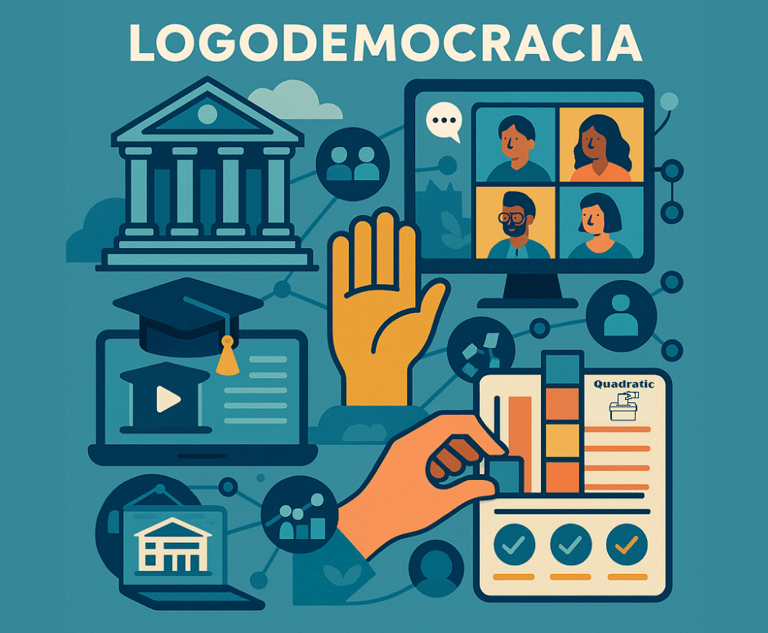

Discover how you can be part of this Citizen Revolution.
One way
Logo Democracy is not a distant dream or an academic exercise: it is an invitation to walk together toward a more intelligent, transparent, and humane democracy. Transformation begins when people recognize each other as protagonists, not just voters every four years. Every conversation, every community decision, every small agreement is a building block in a more deliberative society.


Discover how you can be part of this Citizen Revolution.
In Logodemocracy, a mandated representative is not a politician who speaks on behalf of people every four years.
Their role is very different: they do not represent individuals, they represent a deliberative community.
These communities meet on a virtual platform that allows them to become informed, learn, and debate before making decisions.
Participants can take e-learning courses, review data, listen to different opinions, and discuss each topic in depth.
The idea is that every decision should emerge from an informed, high-level dialogue, accessible to anyone who wants to take part.
When the community reaches an agreement, that result is recorded on the platform and becomes a clear mandate.
The mandated representative is simply the voice that carries that result to another space: a meeting, a congress, or a larger decision-making platform.
They do not speak for themselves, do not give personal opinions, and do not promise anything they invent.
Their only job is to faithfully communicate what the community has decided.
The advantage is enormous:
No one “represents” you for years without accountability.
Decisions can be updated whenever the community requires.
Power remains in the community, not in one person.
These deliberative communities are, in essence, Political Parties 2.0:
Spaces of convergence for those who seek the best for their country, their neighborhood, their society.
People with shared interests who want to come together, learn, and be heard—without their participation turning into a springboard for a personal career.
Unlike traditional parties—which often end up being platforms for those most skilled at climbing the ladder of power—here the focus is not on the ambition of a politician, but on the collective intelligence of the citizens.
Education and participation hand in hand
In this model, education works together with citizen participation.
A digital citizen community is not only a space for deliberation, but also a learning platform, where every citizen can train themselves, access quality information, and make informed decisions.
In this way, education and participation are no longer separate activities: learning becomes part of the act of deciding.
The first milestone toward Logodemocracy
To reach a complete model of Logodemocracy—with quadratic voting, technical deliberation, and large-scale citizen participation—the first step is legal.
In countries like Chile, and in most current democratic systems, the figure of the mandated representative does not exist. Therefore, milestone number one is to change the law so that this figure can be officially recognized.
Without this legal framework, communities can organize and deliberate, but they cannot bring their mandate into the State’s decision-making arenas.
Achieving this reform means opening the door for citizens to begin, in a concrete way, the path toward a more transparent, intelligent, and participatory democracy
Mandated Representatives and Virtual Communities
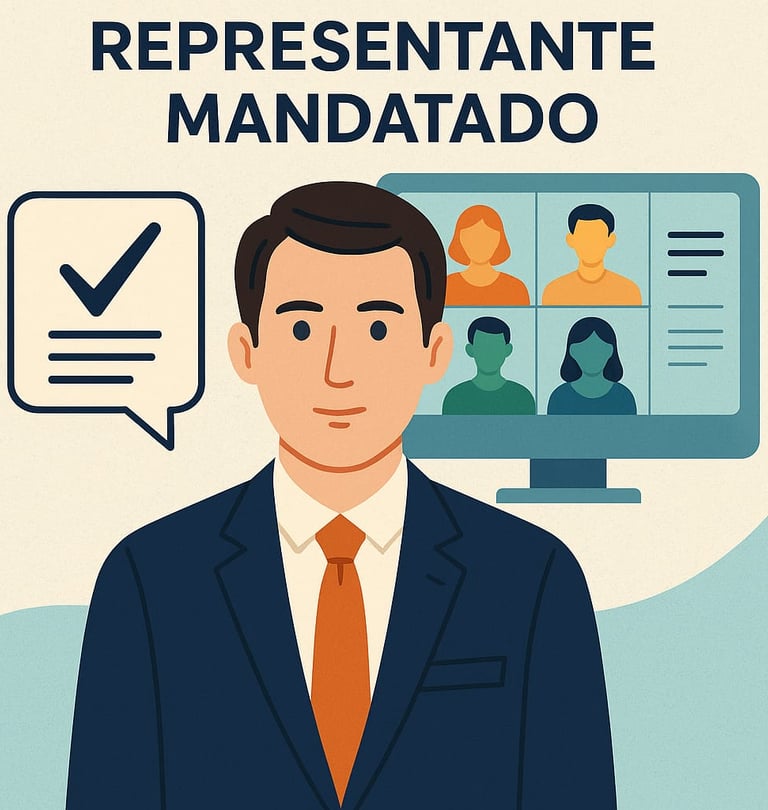

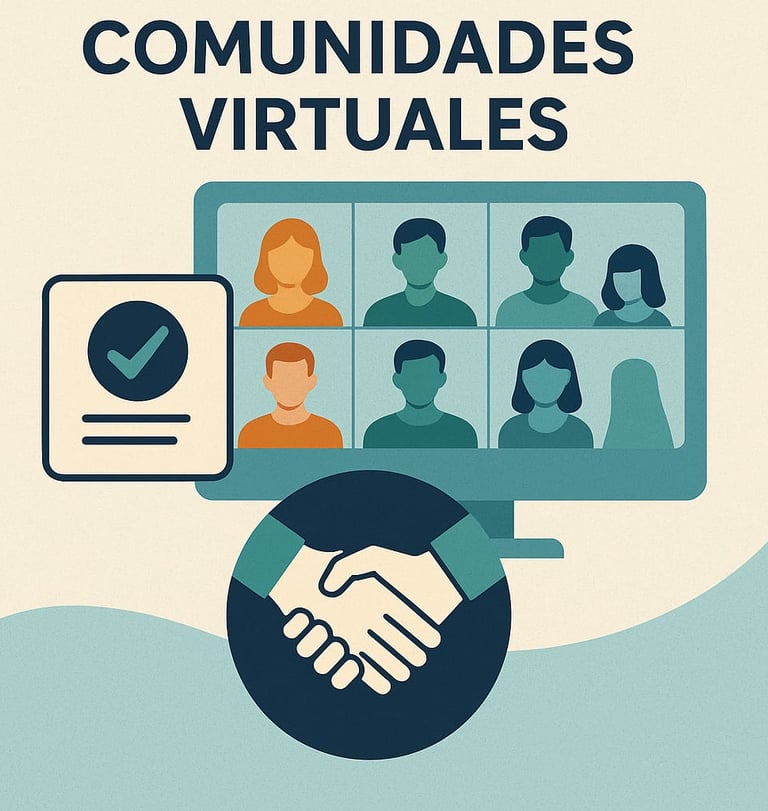

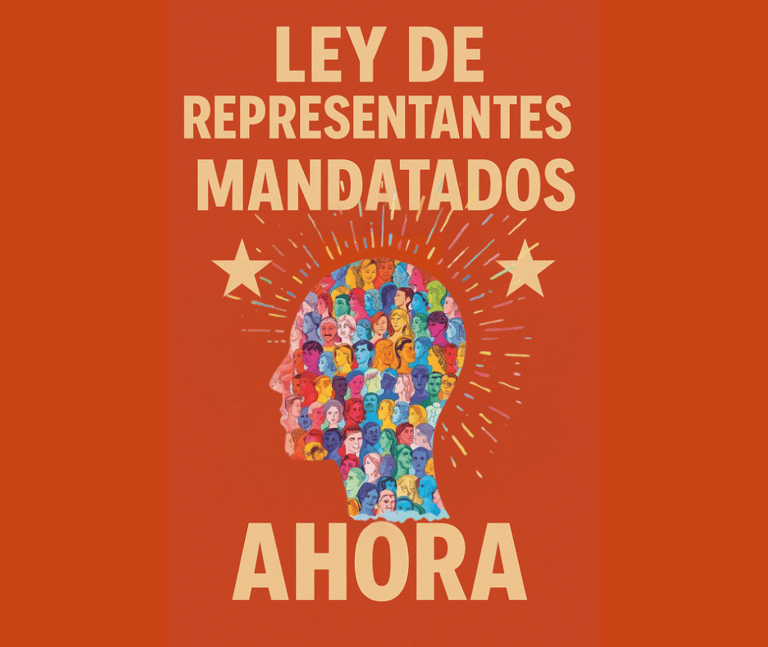

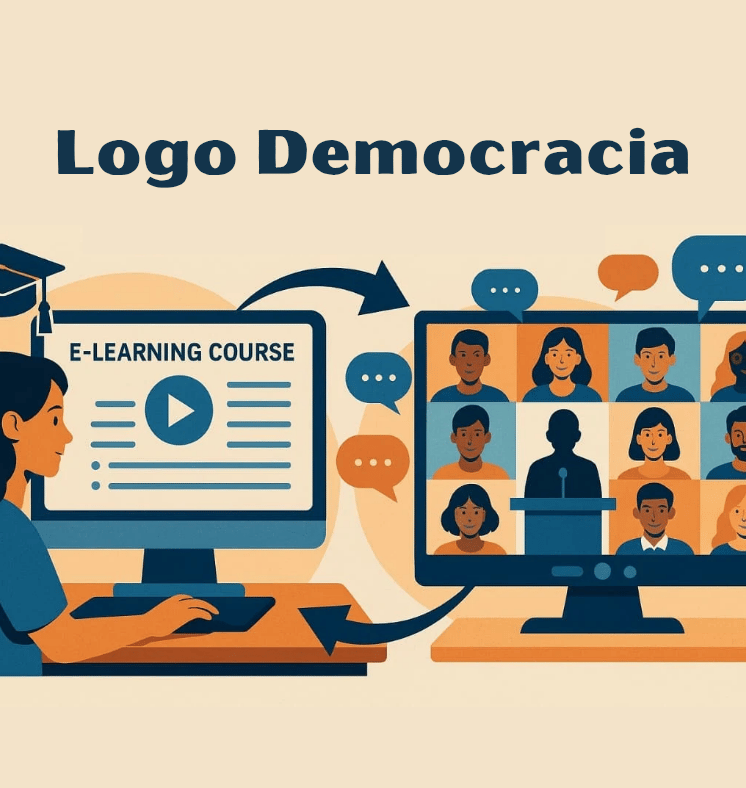

In Logodemocracy, a mandated representative is not a politician who speaks on behalf of people every four years.
Their role is very different: they do not represent individuals, they represent a deliberative community.
These communities meet on a virtual platform that allows them to become informed, learn, and debate before making decisions.
Participants can take e-learning courses, review data, listen to different opinions, and discuss each topic in depth.
The idea is that every decision should emerge from an informed, high-level dialogue, accessible to anyone who wants to take part.
When the community reaches an agreement, that result is recorded on the platform and becomes a clear mandate.
The mandated representative is simply the voice that carries that result to another space: a meeting, a congress, or a larger decision-making platform.
They do not speak for themselves, do not give personal opinions, and do not promise anything they invent.
Their only job is to faithfully communicate what the community has decided.
Mandated Representatives and Virtual Communities








To reach a complete model of Logodemocracy—with quadratic voting, technical deliberation, and large-scale citizen participation—the first step is legal.
In countries like Chile, and in most current democratic systems, the figure of the mandated representative does not exist. Therefore, milestone number one is to change the law so that this figure can be officially recognized.
Without this legal framework, communities can organize and deliberate, but they cannot bring their mandate into the State’s decision-making arenas. Achieving this reform means opening the door for citizens to begin, in a concrete way, the path toward a more transparent, intelligent, and participatory democracy.
The first milestone toward Logodemocracy
Education and participation hand in hand
In this model, education works together with citizen participation.
A digital citizen community is not only a space for deliberation, but also a learning platform, where every citizen can train themselves, access quality information, and make informed decisions.
In this way, education and participation are no longer separate activities: learning becomes part of the act of deciding.
The advantage is enormous
No one “represents” you for years without accountability.
Decisions can be updated whenever the community requires.
Power remains in the community, not in one person.
These deliberative communities are, in essence, Political Parties 2.0:
Spaces of convergence for those who seek the best for their country, their neighborhood, their society.
People with shared interests who want to come together, learn, and be heard—without their participation turning into a springboard for a personal career.
Unlike traditional parties—which often end up being platforms for those most skilled at climbing the ladder of power—here the focus is not on the ambition of a politician, but on the collective intelligence of the citizens.
The Click Law is the first step toward Logo Democracy: a path of civic innovation that opens up new forms of participation, collaboration, and citizen engagement.
A path to give communities a voice, so that politics becomes more transparent, fair, and efficient.
A path that invites us to be protagonists, to take our voices seriously, and to become better citizens.
Are you ready to Click on Democracy?


The Click Law is the first step toward Logo Democracy: a path of civic innovation that opens up new forms of participation, collaboration, and citizen engagement.
A path to give communities a voice, so that politics becomes more transparent, fair, and efficient.
A path that invites us to be protagonists, to take our voices seriously, and to become better citizens.
Are you ready to Click on Democracy?


